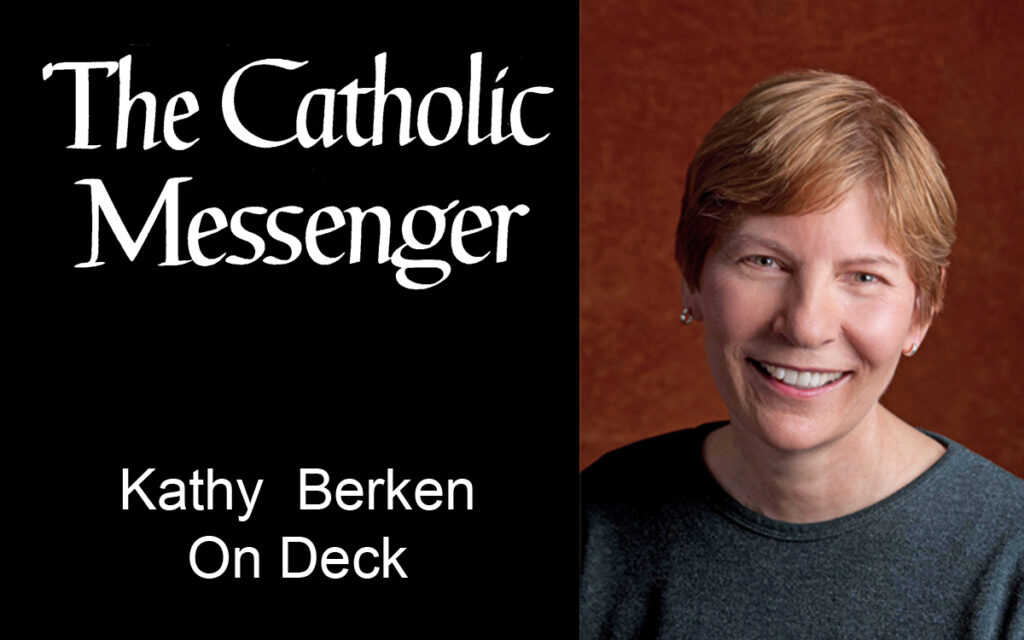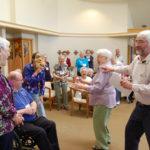By Kathy Berken
Hope shines as a sunbeam in a time that runs the gamut from minor annoyances to utter despair. The season of Lent gives us a great opportunity to reflect on how we might dig out of the muck of this past year and allow hope to emerge triumphant.
 Hope is our theme for the second half of 2021 at the Franciscan Retreats and Spirituality Center in Prior Lake, Minnesota, where I am on the preaching team. We will focus on H.O.P.E. as an acronym: Healing, Opening, Perceiving, and Engaging.
Hope is our theme for the second half of 2021 at the Franciscan Retreats and Spirituality Center in Prior Lake, Minnesota, where I am on the preaching team. We will focus on H.O.P.E. as an acronym: Healing, Opening, Perceiving, and Engaging.
1. To be healed is not synonymous with being cured, so we want to find ways to heal our spiritual, relational and emotional wounds through a process of sharing our stories of woundedness, remembering our losses, replacing our nagging memories with ones that bring us life, and creating spiritual practices that help us ground ourselves to God.
On a practical level, we can seek out those who will go through the process of healing with us. I have two groups of former classmates who began meeting for two different courses, but now we are friends who are a real support for each other. Meeting on Zoom now, we allow about two hours at each monthly gathering to just talk and share our feelings. No judgments, no critiques, just an opportunity to come together and feel a real sense of community. They give me hope!
2. Openness can lead to a life of hopefulness if we first determine what we are open to and what we are not open to. Are we open to listening to God’s word, to expressing our deepest values, to discovering where God is in our lives, to having open hands instead of clenched fists, to creating peaceful and safe open spaces for others who are different from us?
Years ago, I found it challenging to be open to the viewpoints of opinions that are very different from mine. However, once I realized that rather than feeling pressure to abandon all of my values, I could open my heart to the possibility for something new to grow in my life.
3. Perception becomes reality! What each of us perceives about the life we experience is unique and becomes our truth. Do I perceive a situation or another person with my eyes or the eyes of faith? Is it still true that “We see things not as they are but as we are?” If so, what effect does that have on my thoughts and behaviors?
Decades ago, a personal family situation became public, and before long, the public perception was something very different from what I believed to be true. It was disheartening to have friends say disparaging things about my family when they did not know the whole story. But if perception did become reality, then I had to live with that dichotomy for a long time. My hope came from friends who cared enough to listen to more than what they heard from others.
4. Engaging involves encountering and endurance, effectively making a difference either in our own lives or the lives of those around us. We persevere in our engagement in order to bring about hope. Do we trust God and ourselves to listen to what we might be called to do to shine a light into the world of darkness to create yet another beam of hope? Trust is an anchor in a life of hopefulness.
My spiritual practice this Lent is to engage by doing small random acts of kindness and paying attention to how those moments can cause hope to rise from the darkness. After all, our three theological virtues of faith, hope and love are the bedrock of Christianity, and having one without the others is akin to trying to sit on an off-kilter three-legged stool.
(Kathy Berken is a spiritual director and retreat leader in St. Paul, Minnesota. She lived and worked at The Arch, L’Arche in Clinton from 1999-2009.)











